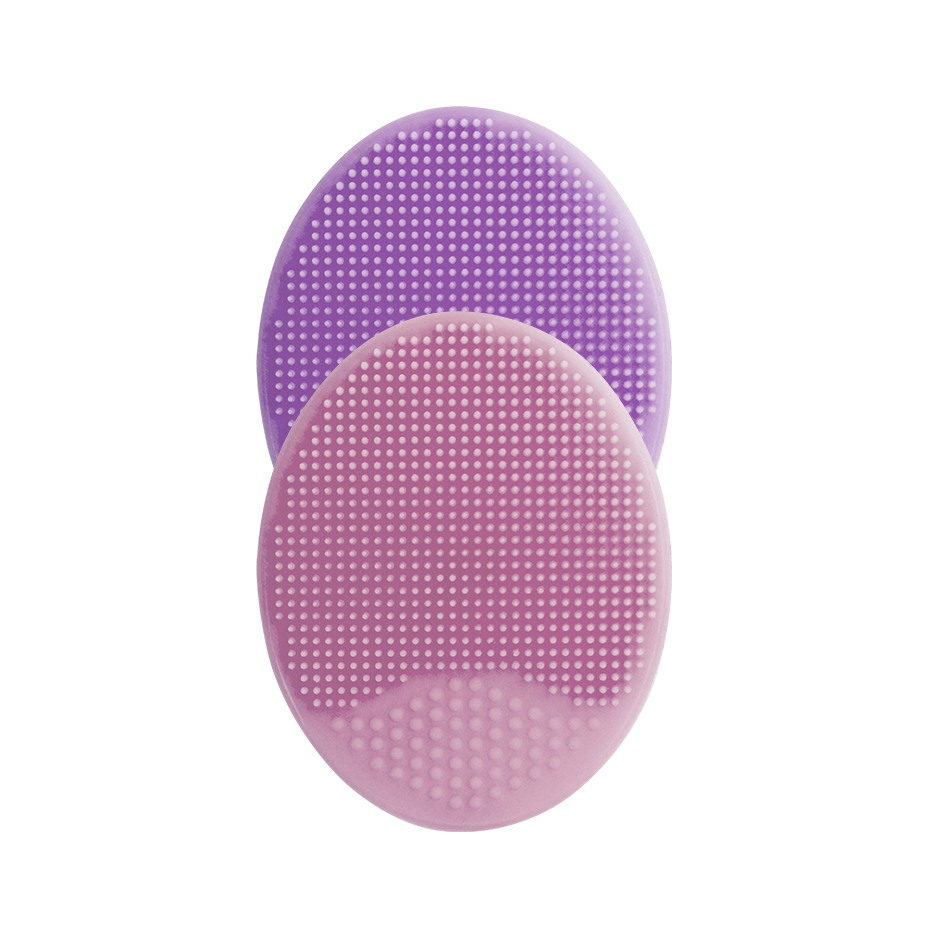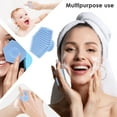Exfoliating your face is one of the most crucial steps in maintaining healthy and radiant skin. Whether you're a skincare enthusiast or just starting to explore skincare routines, incorporating a face exfoliator scrubber can significantly enhance your complexion. By removing dead skin cells, face exfoliators help improve skin texture, unclog pores, and promote a glowing complexion. However, with so many options available in the market, choosing the right product can be overwhelming.
In this comprehensive guide, we'll delve into everything you need to know about face exfoliator scrubbers. From understanding their benefits to selecting the best product for your skin type, we'll provide you with expert advice and actionable tips. Whether you're searching for chemical exfoliators or prefer physical scrubs, this article will help you make informed decisions.
By the end of this guide, you'll not only understand the importance of face exfoliation but also discover how to integrate it into your skincare routine effectively. Let's dive in and explore the world of face exfoliator scrubbers!
Read also:Is Andy Samberg Religious Exploring The Spiritual Life Of A Beloved Comedian
Table of Contents
- What is a Face Exfoliator Scrubber?
- Benefits of Using a Face Exfoliator
- Types of Face Exfoliators
- How to Choose the Right Face Exfoliator Scrubber
- Best Practices for Using a Face Exfoliator
- Common Mistakes to Avoid When Using Face Scrubbers
- Top Face Exfoliator Scrubber Product Recommendations
- How Often Should You Use a Face Exfoliator?
- Face Exfoliator Scrubber for Different Skin Types
- Conclusion
What is a Face Exfoliator Scrubber?
A face exfoliator scrubber is a skincare product designed to remove dead skin cells from the surface of your skin. Exfoliation is essential for maintaining smooth and healthy skin. There are two primary types of exfoliators: physical and chemical. Physical exfoliators, such as scrubs, use abrasive particles to manually remove dead skin, while chemical exfoliators rely on acids or enzymes to dissolve dead skin cells.
Face exfoliator scrubbers come in various forms, including creams, gels, and even electronic devices. The choice of product depends on your skin type and specific skincare concerns. For instance, individuals with sensitive skin may prefer gentle chemical exfoliators, while those with oily or acne-prone skin might benefit from physical scrubs.
Why Exfoliation Matters
Exfoliation plays a vital role in skincare because it helps:
- Improve skin texture and tone
- Unclog pores and reduce acne
- Enhance the absorption of other skincare products
- Boost circulation and collagen production
Benefits of Using a Face Exfoliator
Using a face exfoliator scrubber offers numerous benefits for your skin. Beyond simply removing dead skin cells, exfoliation can enhance your overall complexion and promote healthier skin. Here are some key advantages:
Improved Skin Texture
Regular exfoliation helps smooth out rough patches and uneven skin texture. By eliminating dead skin cells, you reveal fresher, healthier skin underneath. This results in a softer and more radiant complexion.
Reduced Acne and Blackheads
Exfoliators can help unclog pores, reducing the risk of acne and blackheads. Chemical exfoliators, in particular, penetrate deeper into the pores to dissolve impurities and prevent blockages.
Read also:Spencer Pearson A Comprehensive Guide To The Rising Star
Enhanced Product Absorption
Clean, exfoliated skin allows skincare products like serums and moisturizers to penetrate more effectively. This ensures that active ingredients in your products work optimally, providing better results.
Types of Face Exfoliators
Face exfoliators can be categorized into two main types: physical and chemical. Understanding the differences between these types can help you choose the right product for your needs.
Physical Exfoliators
Physical exfoliators, also known as scrubs, use abrasive particles to manually remove dead skin cells. Common ingredients include sugar, salt, jojoba beads, or microbeads. These products are ideal for individuals who prefer a tactile exfoliation experience.
Chemical Exfoliators
Chemical exfoliators use acids or enzymes to dissolve dead skin cells. Popular chemical exfoliants include alpha-hydroxy acids (AHAs), beta-hydroxy acids (BHAs), and enzymes like papain or bromelain. These exfoliators are gentler on the skin and often preferred by those with sensitive skin.
How to Choose the Right Face Exfoliator Scrubber
Selecting the right face exfoliator scrubber depends on several factors, including your skin type, concerns, and preferences. Here are some tips to help you make the best choice:
Consider Your Skin Type
- Oily Skin: Look for products with salicylic acid or clay-based scrubs to control oil production.
- Dry Skin: Opt for gentle chemical exfoliators with hydrating ingredients like glycolic acid.
- Sensitive Skin: Choose enzyme-based exfoliators or scrubs with fine, non-abrasive particles.
Address Specific Concerns
Whether you're targeting acne, hyperpigmentation, or fine lines, select an exfoliator with ingredients tailored to your concerns. For example, AHAs are effective for brightening the skin, while BHAs work well for acne-prone skin.
Best Practices for Using a Face Exfoliator
To maximize the benefits of your face exfoliator scrubber, follow these best practices:
Start with Clean Skin
Always begin with a clean face to ensure that the exfoliator works effectively. Use a gentle cleanser to remove dirt and makeup before applying your exfoliator.
Rinse Thoroughly
After exfoliating, rinse your face thoroughly with lukewarm water. Avoid using hot water, as it can strip your skin of its natural oils.
Moisturize Afterward
Follow up with a moisturizer to lock in hydration and protect your skin barrier. If you have sensitive skin, consider using a soothing moisturizer with ingredients like aloe vera or chamomile.
Common Mistakes to Avoid When Using Face Scrubbers
While face exfoliator scrubbers can be highly beneficial, misuse can lead to skin irritation and other issues. Here are some common mistakes to avoid:
Over-Exfoliating
Exfoliating too frequently can damage your skin barrier and cause redness or sensitivity. Stick to the recommended frequency based on your skin type and the product instructions.
Using Harsh Products
Some scrubs contain large, abrasive particles that can scratch the skin. Opt for products with fine, gentle exfoliants to minimize irritation.
Top Face Exfoliator Scrubber Product Recommendations
Here are some highly-rated face exfoliator scrubbers that cater to different skin types and concerns:
Best for Sensitive Skin
Glycolic Acid Exfoliating Serum: A gentle chemical exfoliator that brightens and smooths the skin without causing irritation.
Best for Oily Skin
Salicylic Acid Scrub: A clay-based scrub that controls oil production and unclogs pores effectively.
How Often Should You Use a Face Exfoliator?
The frequency of exfoliation depends on your skin type and the type of exfoliator you use. As a general guideline:
- Normal Skin: Exfoliate 2-3 times per week.
- Sensitive Skin: Limit exfoliation to once a week.
- Oily Skin: Exfoliate 3-4 times per week, depending on tolerance.
Face Exfoliator Scrubber for Different Skin Types
Different skin types require different approaches to exfoliation. Here's how to tailor your exfoliation routine based on your skin type:
Dry Skin
Focus on hydrating exfoliators with AHAs like lactic acid. Avoid harsh physical scrubs that can further dry out your skin.
Combination Skin
Use a combination of physical and chemical exfoliators to target different areas of your face. For example, apply a BHA exfoliator on oily zones and a gentle scrub on dry areas.
Conclusion
Incorporating a face exfoliator scrubber into your skincare routine can transform your complexion and enhance your overall skin health. By understanding the different types of exfoliators and following best practices, you can achieve smoother, brighter, and healthier skin. Remember to choose products that align with your skin type and concerns, and always prioritize gentle exfoliation to avoid irritation.
We encourage you to share your experiences with face exfoliator scrubbers in the comments below. Have you tried any of the recommended products? Let us know what works best for you! For more skincare tips and product recommendations, explore our other articles on the site.


